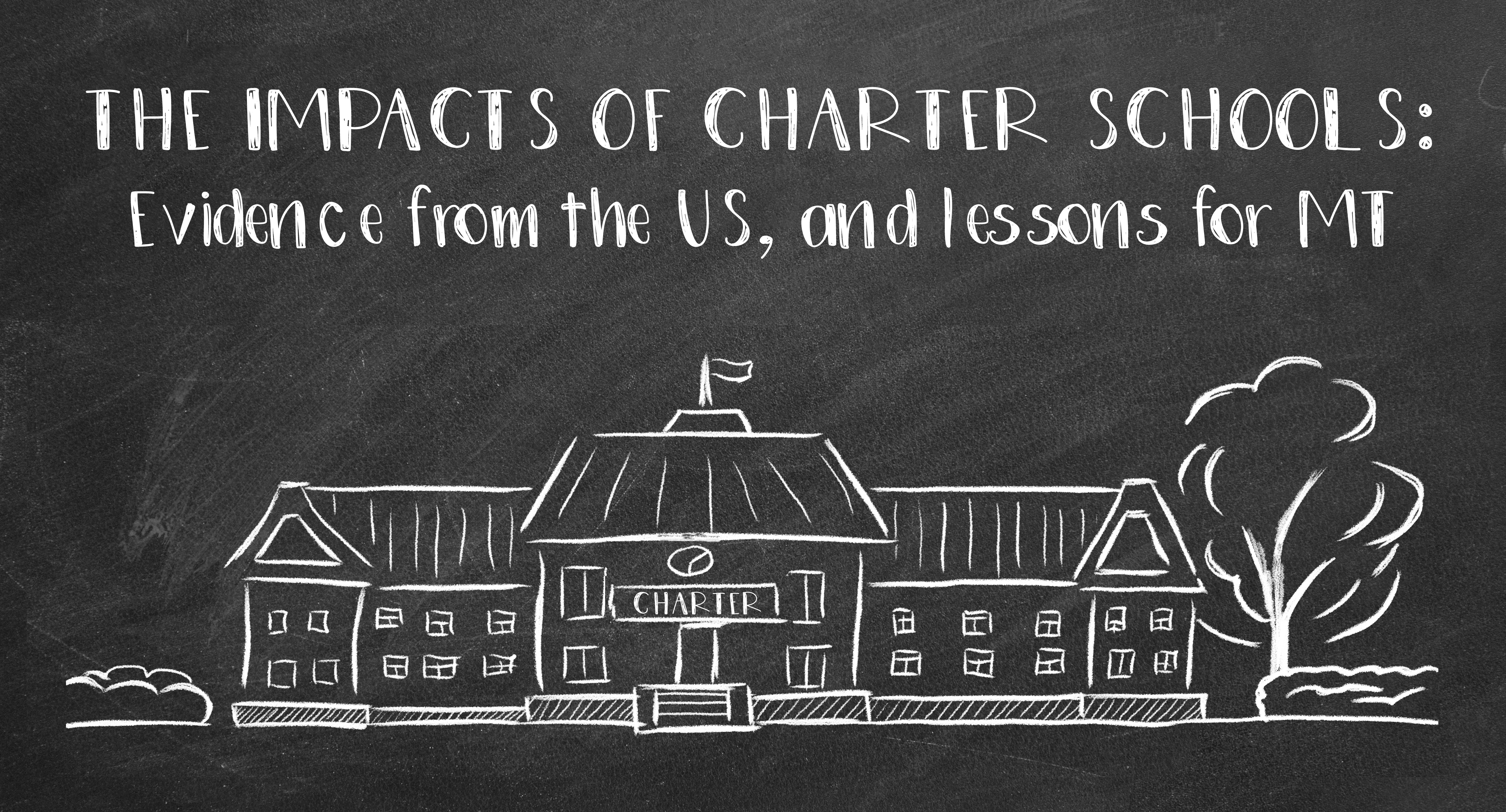The Impacts of Charter Schools: Evidence from the U.S. and Lessons for MT
Virtual Workshop

Charter schools are publicly-funded schools that operate more independently of local school systems than traditional public schools. They run under charters with the state, school district, or other authorizing agency that govern their organization, management, and assessment. Charter schools generally have greater autonomy, but also greater accountability, compared to traditional public schools. Approximately 3 million students attend charter schools in the United States.
This public virtual workshop brought together a small group of national experts on charter school policy and efficacy. The discussion will be geared toward understanding how charter schools affect students and local communities, with the ultimate goal of informing the charter school policy debate in Montana, where public charter schools are currently a much smaller component of the educational landscape than many other U.S. states.
Featured Presenters:

Sarah Cohodes is an associate professor of economics and education at Teachers College, Columbia University. Cohodes holds a Ph.D. in Public Policy from Harvard University. She is a faculty research fellow at the National Bureau of Economic Research and a co-editor at the Journal of Policy Analysis and Management. Her research uses quantitative causal inference methods to evaluate policies and programs that are intended to increase access to high-quality education. She is particularly interested in how young people and their families make choices about education and how school and college quality interact with those decisions.

John Singleton is an assistant professor at the University of Rochester in the Department of Economics. His primary research interests lie at the intersection of public economics and the economics of education. In broader terms, Singleton's research focuses on empirical questions related to the finance and equity of school choice policies. He received his Ph.D. in 2017 from Duke University. His work has appeared in many leading journals.

Ron Zimmer is a professor and director of the Martin School of Public Policy and Administration at the University of Kentucky. Prior to coming to the University of Kentucky, Dr. Zimmer was a faculty member at Vanderbilt University and spent a number of years at the RAND Corporation. Dr. Zimmer is the coeditor of Journal Policy Analysis & Management and previously was the co-editor of Educational Evaluation and Policy Analysis and Economics of Education Review. Zimmer's research focuses on school choice and school finance which has led to a number of scholarly articles, book chapters, and monographs. Much of this research has been funded by an array of foundations, state governments, and the Institute of Education Sciences (IES).
Workshop Schedule: 4:00-6:00 p.m. MST
- Welcome and Overview: Andrew Hill and Wendy Stock, MSU Dept. of Agricultural Economics & Economics/MSU IRAEA
- Ron Zimmer: "The Overall Effectiveness of Charter Schools"
- Sarah Cohodes: "Why Some Charter Schools Are Effective"
- John Singleton: "The Effects on Nearby Schools"
- Questions & Answers Session
For additional information, please contact Dr. Andrew Hill.
